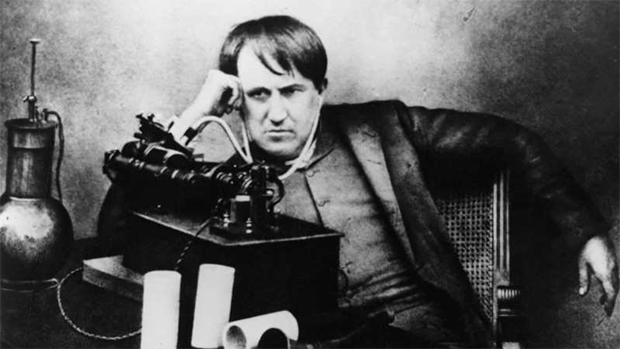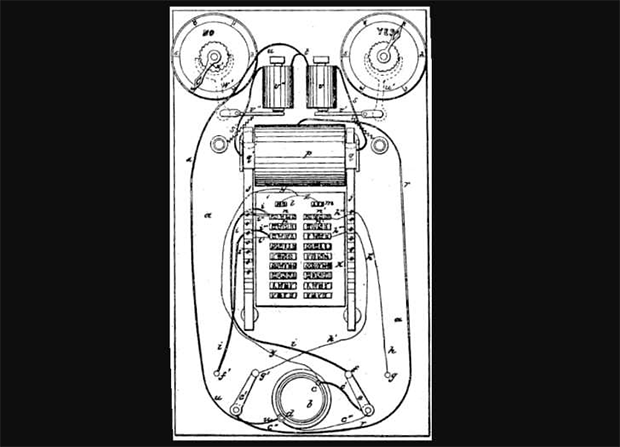|
On June 1, 1869, Thomas Edison patented his very
first invention: a voting machine meant for Congress.
According to Rutgers University’s Thomas A. Edison Papers Project, the
22-year-old inventor might’ve been inspired to design the device after
newspaper reports announced that both the New York state legislature and
the city council of Washington, D.C., were investigating means of
automating their ballot process.
At the time, legislators voted by calling out “Yea” or “Nay” (or
something of that nature), and a clerk jotted down their responses one
by one.
|
 |
|
Edison’s “electrographic vote-recorder” had the names of all the voters
listed twice: in a “Yes” column on one side, and a “No” column on the
other.
When a person flipped a switch to indicate their vote, the machine would
transmit the signal through an electric current and mark their name in
the corresponding column, while keeping track of the total tally of
votes on a dial.
After everyone had voted, an attendant would place a sheet of chemically
treated paper on top of the columns and press down on it with a metallic
roller, imprinting the paper with the results.
|
 |
|
A telegraph operator named Dewitt Roberts invested $100—about $1754 in
today's dollars, according to Tech Times—in the device and set off for
an exhibition on Capitol Hill.
Alas, members of Congress were completely uninterested, and the
committee chairman in charge of deciding its fate declared that “if
there is any invention on earth that we don't want down here, that is
it.”
The committee didn’t think the vote-recorder streamlined the process
enough to be useful, but it’s possible they weren’t too keen on speeding
things up in the first place.
If the officials didn’t voice their votes aloud, there wouldn’t be any
opportunity to filibuster policies or persuade each other to switch
their stances—an integral part of congressional proceedings.
Edison, of course, recovered from his first flop. He went on to invent
(or at least improve upon) the light bulb, create the cat video, and
devise many more notable creations.
|